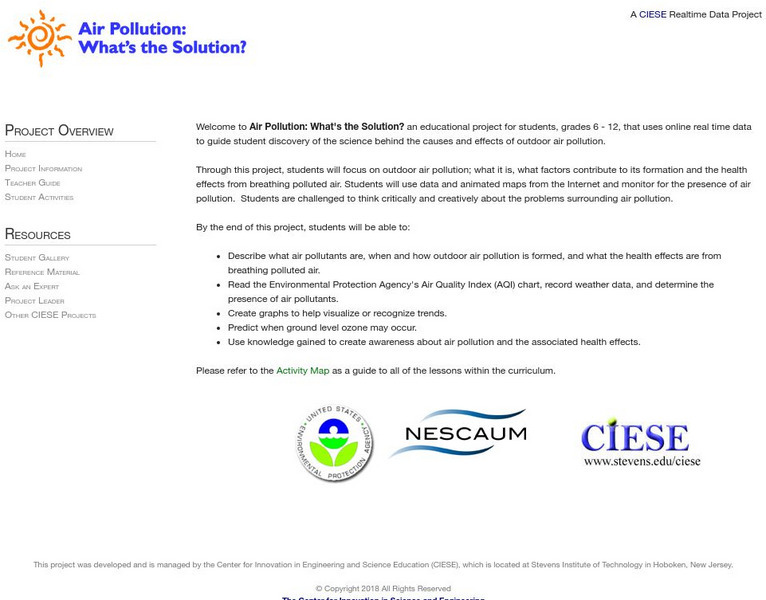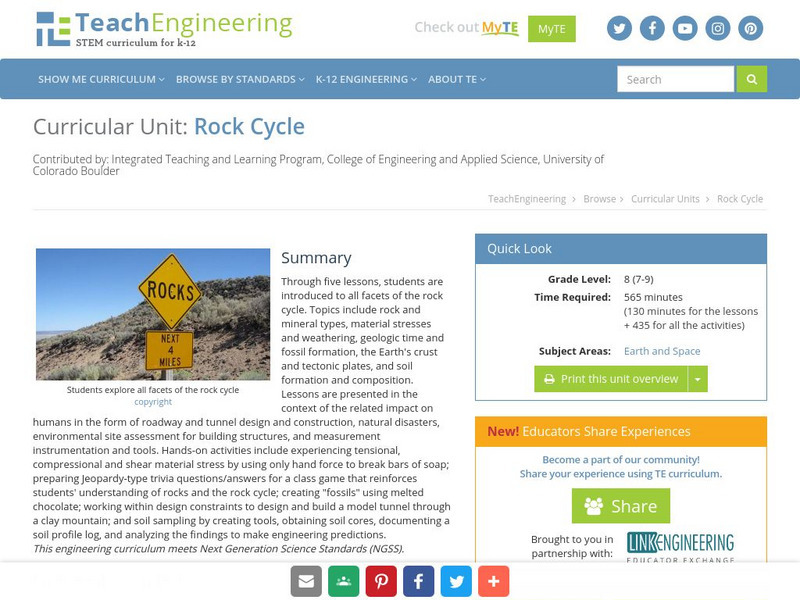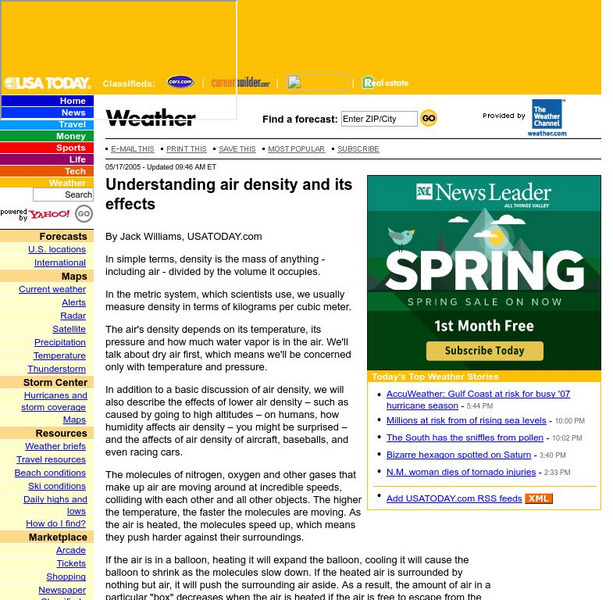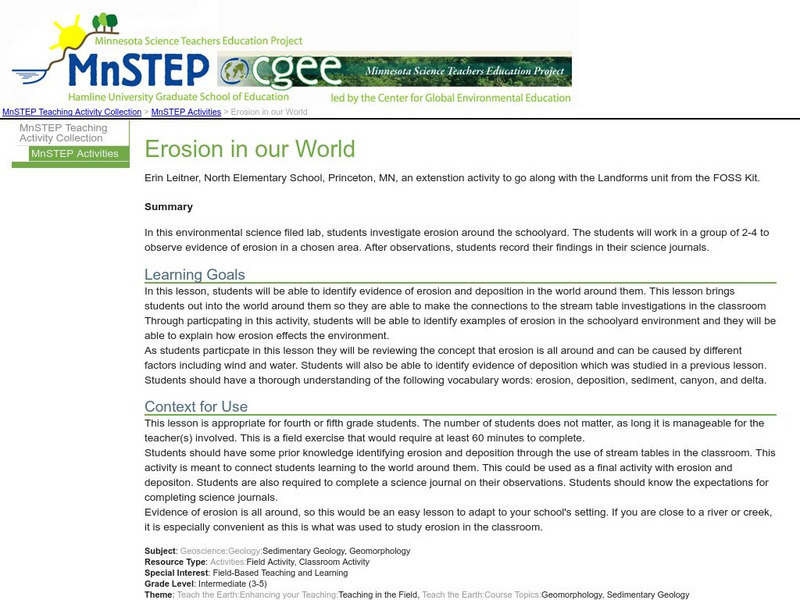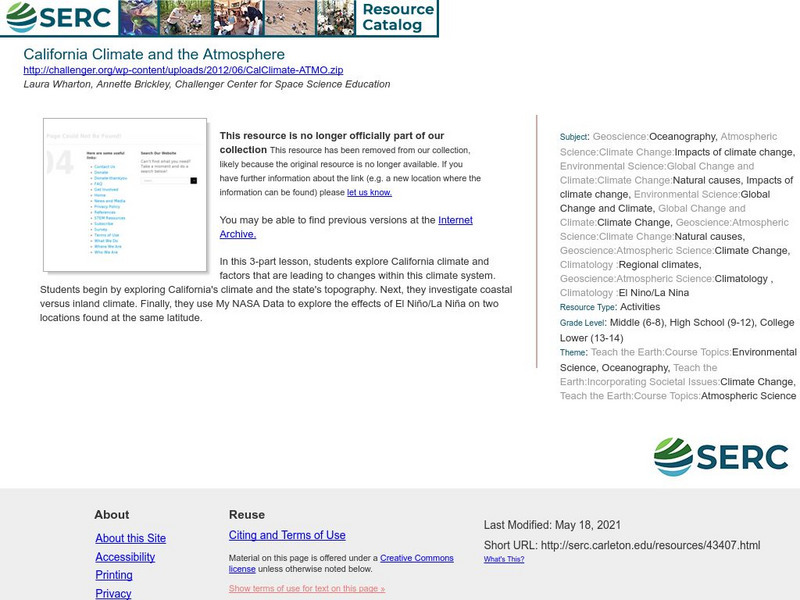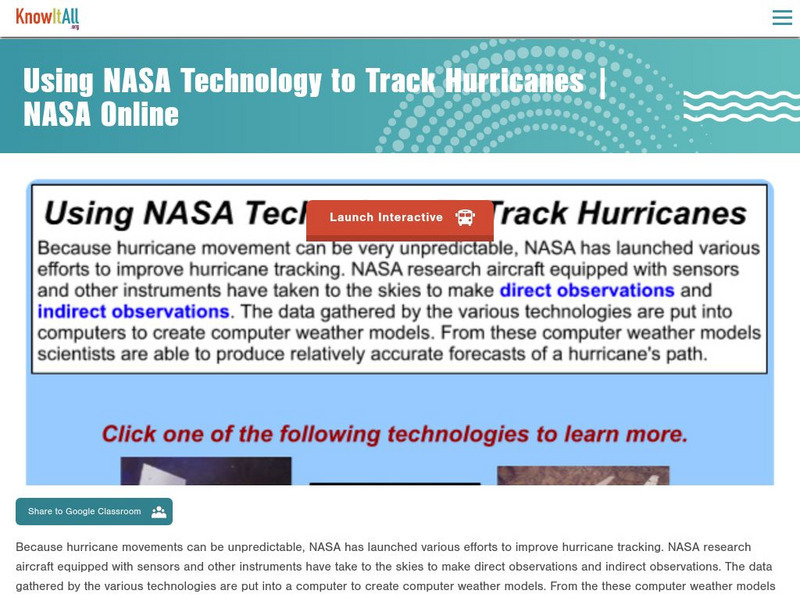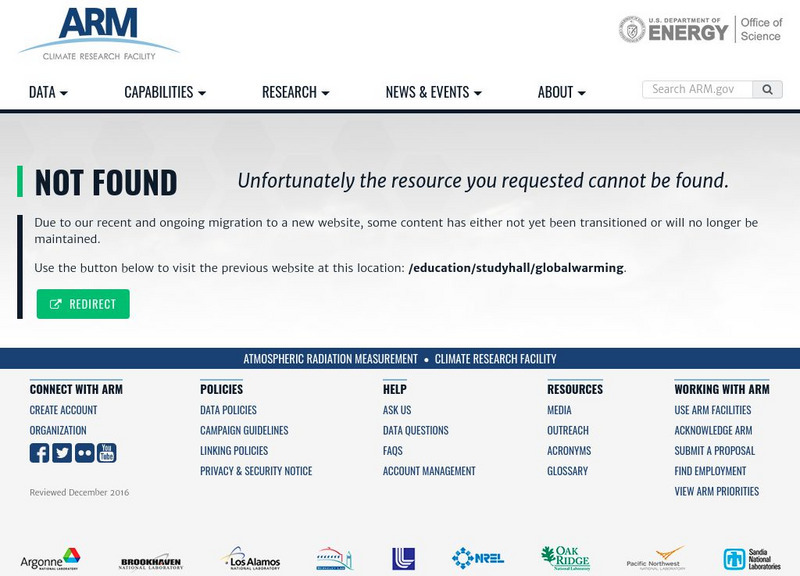Hi, what do you want to do?
Center of Science and Industry
Cosi Columbus: Paper Cup Anemometer
Make your own anemometer like meteorologists use to measure the speed of wind. Includes full list of materials, procedures, and scientific explanation of what makes wind.
ClassFlow
Class Flow: Tornados in the Us
[Free Registration/Login Required] Overview: In this lesson, students will learn the basics about how tornadoes are formed, and when and where they are most likely to occur. They will learn that the United States is the country most...
Science Education Resource Center at Carleton College
Serc: The Heat Is On: Understanding Local Climate Change
A lesson unit where students analyze long-term weather data for Phoenix to look for changes that have occurred over time. They look at factors that would cause climate warming, including greenhouse gases and other phenomena. They then...
Center for Innovation in Engineering and Science Education, Stevens Institute of Technology
Ciese: Air Pollution: What's the Solution?
Outdoor air pollution poses a major threat to human health and threatens the ozone layer. Students will examine real time weather data in this extensive unit to learn how air quality is measured, its health impact on at-risk populations,...
TeachEngineering
Teach Engineering: Rock Cycle
Through five lessons, students are introduced to all facets of the rock cycle. Topics include rock and mineral types, material stresses and weathering, geologic time and fossil formation, the Earth's crust and tectonic plates, and soil...
Science Education Resource Center at Carleton College
Serc: Investigation Erosion in Our World
In this lab activity, students will look for evidence of erosion in river or streams. This activity should take place after students have observed erosion in a model.
Other
California Energy Commission: Science Projects: Make an Anemometer
Nice brief description of this wind speed device and the directions to make your own.
USA Today
Usa Today: Understanding Air Density and Its Effects
In simple terms, density is the mass of anything - including air - divided by the volume it occupies. In the metric system, which scientists use, we usually measure density in terms of kilograms per cubic meter. The air's density depends...
Science Education Resource Center at Carleton College
Serc: Mn Step: Why Are There Seasons? A Study of Phenology
This is an ongoing activity where learners take monthly temperature measurements, and make observations of the weather and changes in the environment, at the same location in the schoolyard each time. They will make and use an astrolabe,...
TED Talks
Ted: Ted Ed: The History of the Barometer (And How It Works)
A barometer is an instrument that measures air pressure, allowing weather forecasters and scientists to better predict extreme weather events. Despite its incredible usefulness, inventing the barometer was no walk in the park. Asaf...
Enchanted Learning
Enchanted Learning: English (Esl) Label Me! Printouts
Over 100 handouts with answer sheets you can print and use to help build English vocabulary. Numerous topics and themes are covered: everyday words, math terms, seasonal and holiday words, geographical terms, animals, opposites, parts of...
Science Education Resource Center at Carleton College
Serc: Effectiveness of Mn Dams in Water Retention
Through this field activity, students will obtain hands-on experience by measuring stream flows and observing landform and stream processes of dams once before water freezes, and again after the weather deposition has occurred. Students...
Science Education Resource Center at Carleton College
Serc: Erosion in Our World
Young scholars collect evidence to investigate erosion and deposition around the schoolyard.
Science Education Resource Center at Carleton College
Serc: California Climate and the Atmosphere
In this 3-part lesson, students explore California climate and factors that are leading to changes within this climate system. Students begin by exploring California's climate and the state's topography. Next, they investigate coastal...
South Carolina Educational Television
Know It All Media: Tracking Hurricane Technology
Find out how scientists have improved hurricane tracking technology through new aircraft and advanced instruments.
Other
Arm Program's Education Center: Global Warming
An all purpose site with something for everyone. Learn about global warming and climate change, ask a scientist, take a quiz, or get a lesson plan!
Microsoft
Microsoft Education Lesson Plan: Making Money From Lemons
Simulation where learners apply mathematics and economics concepts in the lemonade business. Learners set up a virtual lemonade stand and must determine production costs, product variables, and profits. Young scholars record data...
Science Struck
Science Struck: Types of Rain Gauges
Read about two types of rain gauges and how they work.
Curated OER
Wikipedia: Natl Historic Landmarks in Ma: Blue Hill Meteorological Observatory
Described as "principal structure associated with the history of weather observation" in the United States, this observatory is home to the oldest continuous weather record in North America, and is where numerous meteorological...
NOAA
Noaa: Photo Library: Hail Photo 1
The National Oceanic and Atmospheric Administration provides a photo library of severe weather formations. This photograph of a hailstone is measured on a ruler to indicate a diameter of 6 inches (approximately the size of a grapefruit).
NOAA
Noaa: Photo Library: Hail: Photo #2
The National Oceanic and Atmospheric Administration provides a photo library of severe weather formations. This photograph of a hailstone is measured on a ruler to indicate a diameter of 4 inches (approximately the size of a baseball).
Curated OER
Science Kids: Science Images: Anemometer
This photo shows an anemometer, a weather measurement device used to gauge the strength of the wind.
Other popular searches
- Tools Measuring Weather
- Tools for Measuring Weather
- Measuring Weather Activities
- Measuring Weather Changes
- Measuring Weather Conditions
- Measuring Weather Worksheets
- Weather, Measuring Tools








